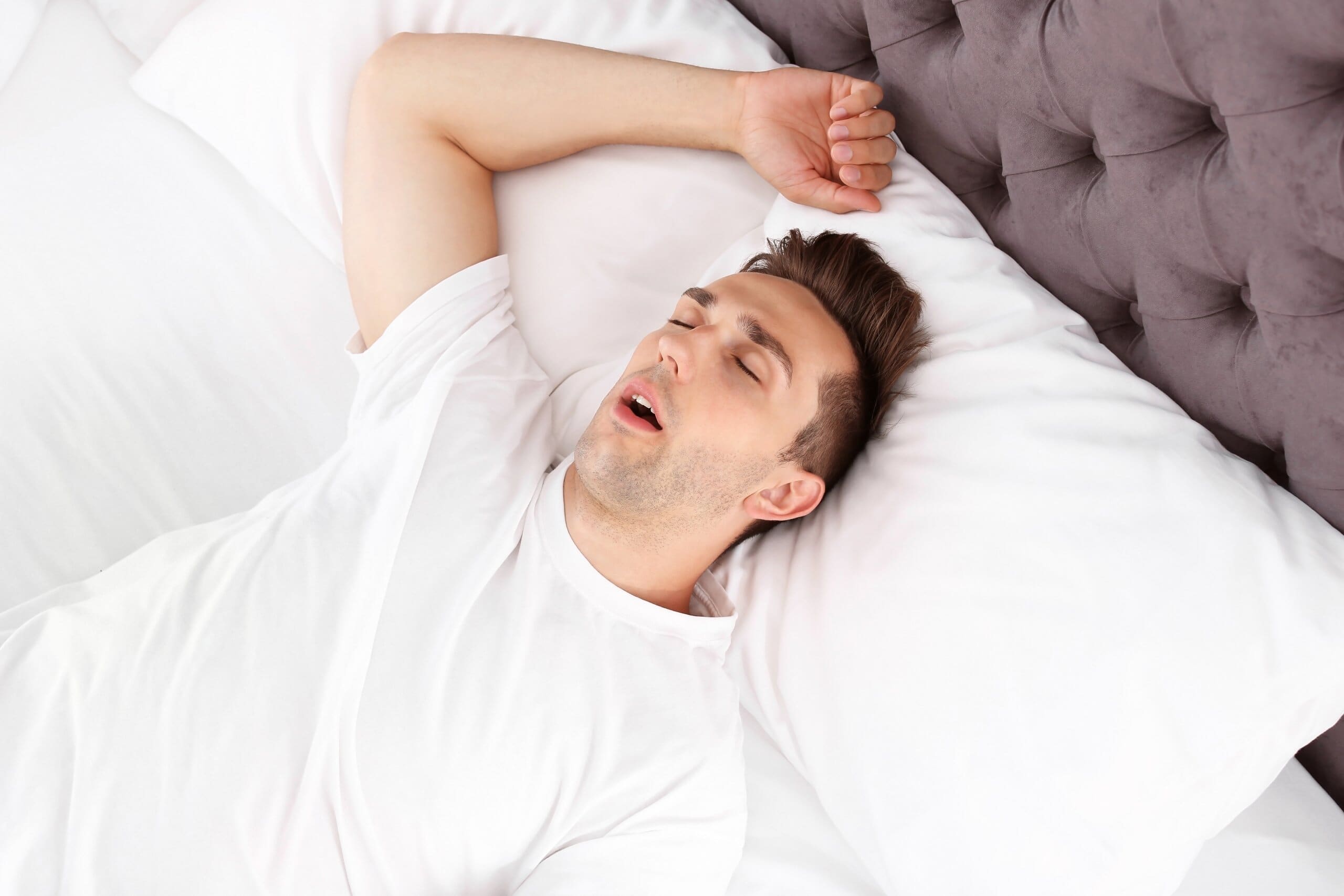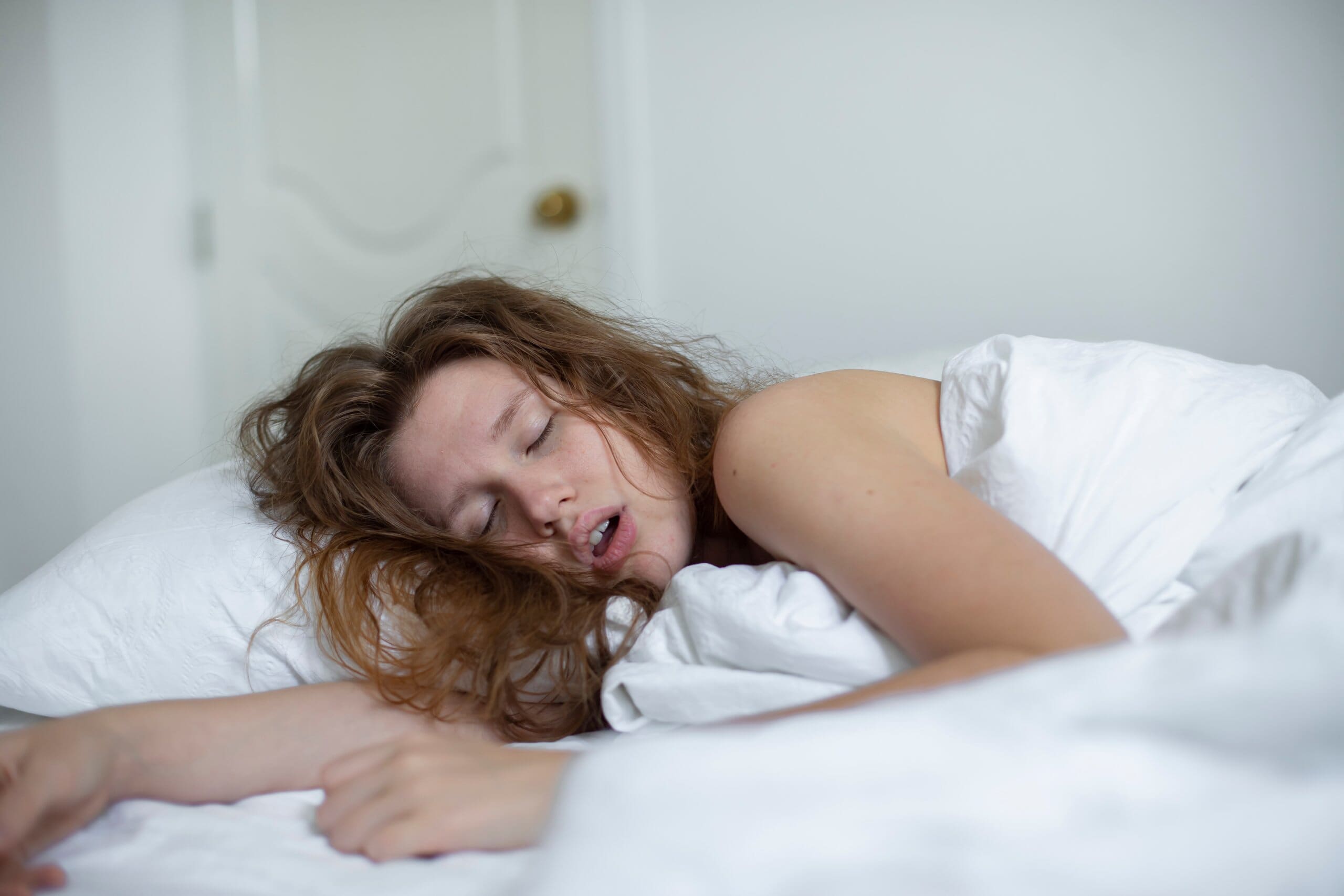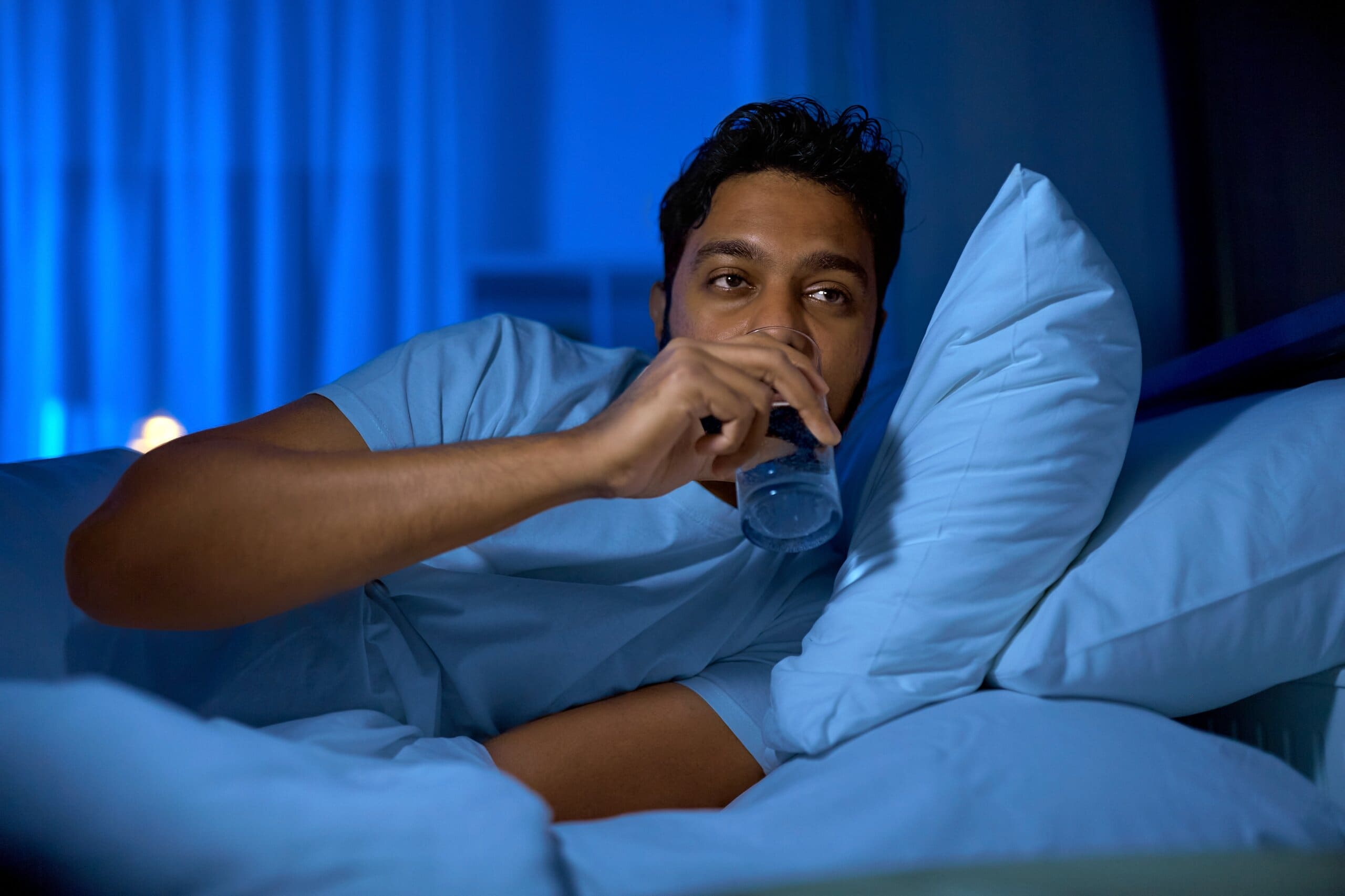Ever laid down for a comfortable night’s sleep, only to wake up earlier than expected with a mouth that feels like sandpaper? Perhaps you forgot to grab a refreshing glass of water before bed and now your tongue is rough and uncomfortable?
If any of this sounds familiar, then don’t worry, you’re not alone! A surprisingly common phenomenon, dry mouth is something that can (and probably will) affect each and every one of us throughout our lives – and while it’s not always a hugely impactful factor on our quality of sleep, it can certainly be unpleasant, to say the least.
But what causes dry mouth while sleeping, and what can you do to reduce the odds of waking up with a desert-dry tongue first thing in the morning?
Well, to help you understand more about dry mouth when sleeping and to stop it from happening when you wake up tomorrow morning, we’ve broken down everything you need to know about the causes of dry mouth when sleeping, and how to prevent dry mouth in the future, so you can leave bed just as comfortably as when you went to sleep.

What is dry mouth?
Also known as xerostomia, dry mouth is exactly what its name suggests – it’s when you wake up in the morning with a noticeably drier and more tender mouth than when you went to bed.
Often uncomfortable, dry mouth is typified as a feeling of stickiness on your tongue and lips, a light burning or roughness, or generally any subjective feeling that you might use to describe your tongue as being, well, dry.
What are the symptoms of dry mouth?
Given that the most common symptom of dry mouth is a dry sensation, you might think that this is the only symptom you need to look out for to indicate that you’ve woken up with this morning annoyance.
However, there are actually plenty of symptoms out there that can indicate dry mouth, including, but not limited to, the following:
- Bad breath
- A sharp burning sensation on your lips and tongue
- Mouth sores
- Difficulty chewing and swallowing
- Difficulty speaking
- A change in taste sensitivity
- Cracked and dry lips
- Regular mouth infections
- Thick and stringy saliva
For the most part, you likely won’t experience any of these dry mouth symptoms after a single night. But if waking up with a dry mouth becomes a regular occurrence, then you may find that one or more of these additional symptoms develop over time.
What causes dry mouth while sleeping?
As you may have guessed, based on the variety of symptoms relating to dry mouth, there are quite a few different things that can cause or increase the likelihood of dry mouth occurring when sleeping, with the most common causes often including a combination of one or more of the following:
1. Snoring and sleeping with your mouth open
By far one of the main causes of dry mouth when sleeping, if you ever wake up one day and randomly experience dry mouth, then it’s likely because you were snoring or mouth breathing during the night, rather than breathing through your nose.
This is not to say that mouth breathing and snoring are necessarily bad for you (although they’re not ideal), but it is true that sleeping with your mouth open will substantially increase the likelihood of waking up with a dry mouth due to the constant movement of air over your tongue in the night, which will draw moisture from your mouth as the night goes on.
2. How hydrated you are before bed
The second biggest factor that can determine whether or not you wake up with a dry mouth, how hydrated you are before bed will determine how hydrated you feel upon waking up.
It goes without saying that going around 8 hours without water is going to leave our body feeling a little bit dehydrated, after all, we can’t replenish fluids while we’re asleep. However, if you didn’t drink enough water the day before, then you’re far more likely to wake up with a dry mouth than if you snuck in a glass of water before tucking yourself in for the night.
3. Anxiety and stress
While not always the case, studies have shown that heightened levels of stress and anxiety can be a contributing factor towards waking up with a dry mouth in the morning, especially if you’re going to bed worried.
Unfortunately, this phenomenon and its link to causing dry mouth is not yet fully understood. However, it’s thought that the increased stress levels in your body may contribute to a reduction in saliva build-up (which is already reduced while sleeping), resulting in you waking up with a drier mouth than you might otherwise have expected.
4. Medication
As useful and lifesaving as medication can be, it’s fair to say that even the most unsuspecting and simple medicine can come with some rather bizarre and unforeseen side effects – including causing dry mouth.
Whether it’s because such medicines interfere with saliva production, or there are other factors at play, if you wake up with a dry mouth and it’s none of the above causes, then it might be time to check the small print on your regular prescriptions.
5. Excess coffee consumption and smoking
Although coffee is by no means dehydrating (it is, after all, mostly water), an excessive intake of coffee’s main benefit, caffeine, can in fact cause dry mouth. Once again this is because caffeine, in large quantities, has been shown to reduce saliva production.
In the same, vein, smoking has been shown to have a similar if not greater impact on saliva production in your mouth, meaning that smokers are far more likely to wake up with a sandpaper tongue than others.

Tips for how to prevent dry mouth while sleeping
So, now you know a bit about what causes extremely dry mouth when sleeping, what can you do to prevent dry mouth from occurring in the first place? Well, we’ve listed out the most common remedies you can try out at home, today:
- Stay hydrated – given that one of the main causes of dry mouth is a lack of hydration, making sure you stay hydrated throughout the day is a fantastic way to stave off dry mouth when waking up. Experts recommend drinking at least 2-3 litres of water per day, and if you find a dry mouth that wakes you up in the night, then it never hurts to have a glass of water on your bedside to sip on.
- Breathe through your nose – although not an easy habit to get used to if you usually sleep with your mouth open, breathing through your nose will reduce the amount of moisture lost through your mouth overnight, decreasing the likelihood of dry mouth in the morning. Using the right amount of pillows will help you get in the optimal position for breathing properly during the night.
- Aim for better sleep – similarly to breathing through your nose, getting better sleep will actually go a long way towards reducing the major symptoms of dry mouth by helping to reduce anxiety and stress, while also giving your body the time it needs to heal and repair.
- Reduce your snoring – while not possible to stop entirely, like mouth breathing, if you can reduce the chances of snoring while sleeping by changing your sleeping position, losing weight, and cutting your alcohol intake, you’ll also reduce the odds of dry mouth occurring in the future.
- Quit smoking – a good habit to kick for many reasons, if you want to add one more reason to the list for you to quit smoking, then eliminating regular dry mouth is certainly a good one to have.
- Use fluoride toothpaste – as alcohol can be a contributing factor to dehydration, the odds of dry mouth occurring can actually be reduced through the use of fluoride toothpaste and mouthwash, as these do not contain alcohol.
Naturally, you can try one or all of the above solutions at the same time, but we recommend trying a few simultaneously if you want to see results faster. However, if you try a few of these and your dry mouth persists, then it’s best to see a doctor as there may be another underlying factor behind its cause, such as sleep apnea.
For more tips on how to get the best night's sleep, such as how to sleeping with a cough or how to stop sleep talking, head to the Health & Lifestyle section of our blog.





